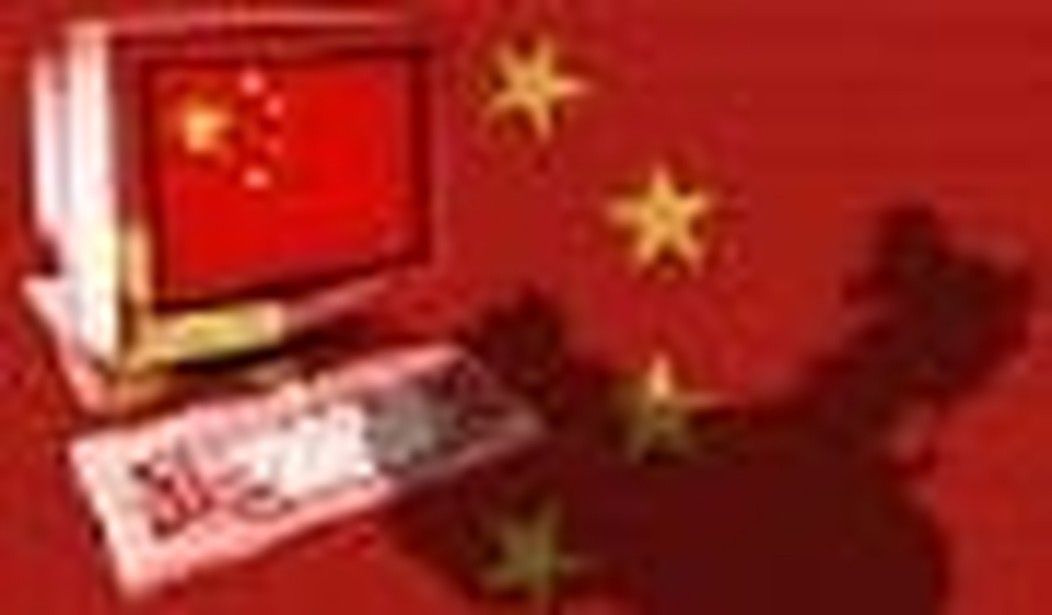Is the Communist Party of China liberalizing? The West has made a monumental bet that it is, so every shred of good news is given wide circulation and accorded great significance. The latest tidbit of speculation to come out of Beijing concerns media freedom.
In June, Hu Jintao, China’s supremo, visited the offices of People’s Daily, the Party’s flagship publication, to celebrate the 60th anniversary of its founding. There, he mentioned that “large-scale public incidents” — the Chinese euphemism for mass protests — should be “accurately, objectively and uniformly reported, with no tardiness, deception, incompleteness or distortion.” He also suggested a “press law” to help protect the country’s journalists from Propaganda Ministry censors. In the middle of last month, London’s Telegraph, in response to Hu’s words, reported that Beijing “is considering loosening its grip over the media.”
The allowance of accurate and objective reporting would be a real breakthrough for the People’s Republic. During the three decades of the reform era — the period beginning with the accession of Deng Xiaoping — the Party has drastically reduced financial support for media outlets. Now, most of them are expected to fund themselves, and this has resulted in vibrant television shows, radio programs, magazines, and newspapers, all ferociously competing for the attention of China’s citizens. Moreover, traditional media has had to go up against the lively internet, where Chinese people are, for the first time in their history, carrying on national conversations. Central propaganda officials, therefore, have had to wage an ongoing struggle to rein in increasingly daring journalism — and journalists.
The problem for the censors has become especially acute in recent years as Chinese society has become more open, free, and dynamic and as Hu Jintao has steered the Chinese government backward. Beijing, unfortunately, is in the sixth year of a crackdown. China is thought to have the most sophisticated media and internet controls in the world, yet the mighty one-party state has had trouble keeping up with an emboldened and defiant citizenry.
Especially in the streets. There are tens of thousands of protests each year in the People’s Republic. The central government occasionally releases statistics, but it is unclear whether any of them are accurate. Jerome Cohen of the Council of Foreign Relations thinks that there could have been more than 150,000 of them in 2005. If anything, the number has gone up since then.
Last month, the Chinese have been particularly unruly. In northwest Gansu province, about 1,000 rioters attacked a government office, smashed cars, and beat police and officials. In southern Guangdong, shop owners took to the streets, as did homeowners in Beijing and residents in Hebei. Taxi cab and bus drivers have staged an extraordinary series of demonstrations across China. Perhaps of most concern to the regime are recent street protests of workers, many of them demanding back pay from bankrupt businesses. At least 67,000 factories have closed in the first half of this year, and many more have and will go under, leaving employees short of pay, out of luck, and extremely discontented.
In the past, the Chinese central government hid protests from foreigners and even its own people. Today, that’s just not possible given the advent of cheap, mass communications in a country that claims the most number of internet users in the world. Therefore, the always cunning and sometimes pragmatic authorities in Beijing have hit upon a new strategy to control information. Instead of attempting to hide bad news, officials are trying to be the first to report it.
Early reporting gives them the opportunity to spin events. “They are trying to control the news by publicizing the news,” a Chinese academic, with close ties to propaganda officials, told Reuters. “Comrades on the news battle line” — journalists in Western parlance — “must fully recognize the great responsibility they bear,” said Hu Jintao in his June 20 remarks. They must play a role in “consolidating a common ideological foundation for the whole Party and the people of every ethnic group in the whole country to unite in struggle.”
What does this mean in practice? Journalists covering the Sichuan earthquake, which took about 85,000 lives this May, were initially given more latitude to report events. But as soon as local governments recovered and central propaganda authorities set upon the “correct” line, coverage uniformly adopted a Maoist heroic tone, praising relief workers — especially soldiers — and shunning talk of shoddy building construction that led to tens of thousands of unnecessary deaths.
Yet the new strategy, although sophisticated, was short lived. When journalists began to report on the collapsed schools that triggered so much anger among residents in the quake area, central authorities resorted to the old way of doing things by issuing a notice banning coverage of the matter. Local officials then detained reporters, and paramilitary troops blocked access to others of them. Some things never change in dictatorial states.









Join the conversation as a VIP Member